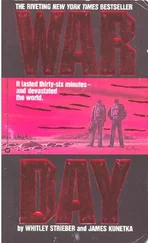She sat down beside him. “Can I interest you in—” She glanced at her watch, picked up the TV Guide . “A Mork and Mindy rerun? The McLaughlin Group?”
“Invasion of my space, Mom.”
“Point taken, backing off.” But she didn’t do that. She knew to stay right where she was.
“And just because I’m watching 2001 does not mean that I’m sad.”
What could she say to the misery in that voice? “Conner, a genius does not an actor make.”
“Mother, could you consider dropping that label? You say that all the time and it does not help.”
“That you’re not a good actor?”
“Okay, let’s do this. Would you care to come out on the deck with me?”
“On the deck? It’s twenty-six degrees.”
But he’d already gotten to his feet and slid open the door. He gestured to her, and she saw the anger in it. She went out with him.
The air was sharp with smoke, the western sky deep orange beyond the black skeletons of the winter trees. One would have thought that a winter silence would prevail, but instead she heard the shrill voices of preteen boys.
When she looked down toward the Warners’ house, she saw streaks of light racing around in the backyard.
“You’re not invited?”
He went back in the house, sat down, and jammed the button on the remote. The bone sailed into the sky, the “Blue Danube” started.
Paulie and Conner had been friends effectively from birth—Conner’s birth, that is. Paulie was a year and a half older.
“Conner, what happened?”
“Nothing.”
“Something happened.”
“Mom, I’ve asked for space.”
“Honey, look, you’ve got one place you can go. Here. Two people who are one hundred percent on your team, me and Dad. And I want to know why you aren’t at that party.” And why, moreover, was it unfolding outside where Conner could watch from a distance? That was real hard, that was.
Conner was ten months younger than the youngest child in his class at Bell Attached, the school that served the children of Bell College’s professional community. He was nowhere near puberty, in a class where half the boys were shaving at least occasionally.
“Conner, would it make you feel better if I told you that puberty turns boys into monsters?”
“Thank you for that little dose of sexism, Mother. Girls have trouble with puberty, too.”
“But boys really do.”
She could hardly believe that Maggie and Harley would allow Paulie to leave Conner out like this. “What’s really wrong?”
“All right. Fine.” He got up, crossed the room, and went downstairs.
She heard him shut the door to the basement that Dan had finished for him when he was five. It was boy heaven down there, with an X-Box and a TV/DVD combo and a hulking but powerful Dell computer, plus his dinosaur collection, all of them painted with the utmost realism, and his train set, HO-grade, which had lighted houses, streetlights lining the streets, and lighted trains. He would play trains in the dark down there by the hour, muttering to himself in the voices of a hundred train men and townsfolk, all of whom he had invented, all of whose lives evolved and changed over the years. Katelyn thought of the train set as a sort of ongoing novel, and that her boy was a word genius as much as he was a math genius.
The care he lavished on everything he modeled came from his ability to concentrate. Even when he’d been little, he hadn’t been clumsy. When he was eight, she’d discovered while cleaning up one day that the tiny human figures in his train set all had different-colored eyes, they had been that carefully finished.
She had loved him so, then, looking down at a tiny suited figure with a tie so small that you had to look under a magnifying glass to see the design he’d painted on it. And then you would hear him deep in the night talking to himself, and you would realize that he was reciting a book he’d read, maybe even years ago, all from memory, just to enjoy it again.
Conner and Dan had celebrated the completion of the room by putting a plaque on the door: THE CONNER ZONE.
She and her husband had celebrated in quite a different way, later that night. This was your garden-variety tract house, as isolated as it and its three neighbors were, and the walls were tract-house thin. They did not feel that this extremely sensitive child needed to overhear the sounds of sex in the next room. And on that night, at last, they had been able to use their bed the way a bed was meant to be used, instead of being as still as possible, wincing at every squeak, and keeping their cries to a whisper.
“Dan,” she said, walking into the kitchen where he had begun trimming ribs, “there’s something kind of ugly going on. Paulie’s having a party and Conner’s not invited.”
“Jesus.”
“They’re actually outside playing with flashlights, which I kind of have the feeling is on purpose.”
“Kids are cruel.”
“Listen, incidentally, I had an e-mail from Marcie Cotton about you.”
“Oh?”
“They’ve reached the point of asking general-faculty opinion.”
“Oh, God.”
“I gave you a great report.”
“What a relief.”
“Come on, what else would I do?”
“Tell the truth like everybody else. I’m dull as dishwater in the classroom.”
“No, you’re actually interesting. It’s physiological psychology that’s dull. In the hands of most profs, it causes birds to die in the trees outside their classrooms. At least yours just fly off.”
“Dull is dull. I should’ve used puppets or worn costumes.”
“I would have preferred almost any other referee, frankly.”
“Yeah, you and me both. But I can handle her… maybe.”
“Not too much.”
Dan went to her, embraced her. “You’re my girl.”
There came a sound from below—a crash.
“He just kicked the wall,” Katelyn said. “Like father, like son.”
“Maybe a mano a mano would be good.”
One of the most precious things about this Dan Callaghan whom her heart had whispered to her to marry was that he was a genuinely good father—not an easy thing to be for a boy as challenging as their son. But Conner’s brilliance and demanding personality also made him fascinating, and she thought that the rewards for loving their boy were substantial. “Maybe a mano a mano would be very good,” she said.
As he went downstairs, he noticed that the Conner Zone sign had been removed from the door, leaving some areas of peeled paint that would have to be repaired. But not right now. He started to open the door, thought better of it, and knocked.
A moment of silence was followed by a grudging, “Okay.”
The room was dark and the trains were running. Conner loomed over the board like some kind of leering godlet, an image that Dan found oddly creepy. In fact, he found Conner, in general, oddly creepy—a great kid, he was crazy about him… but there was something sort of fundamentally creepy about somebody who was probably smarter than Shakespeare, and certainly smarter than you—way smarter.
“Hey there, I see you’ve abolished the Conner Zone.”
“It’s stupid.”
A streetcar, wonderfully modeled, shot around on the tracks, racing through intersections, wheeling out into the forest and then returning to the town, passing Andy’s Garage and Sill’s Millinery and Carter’s Groceries, racing along as crossing guards whipped up and down and the figures inside sat as still as if frozen in terror.
“Isn’t it going a little fast?”
“I’m exceeding the speed limit and maybe they’re all going to die.”
“It hurts, buddy. It’s meant to. Only, we need to get in front of it. Figure out what we’re doing wrong and not do that anymore. That way, we don’t lose our friends.”
Читать дальше












